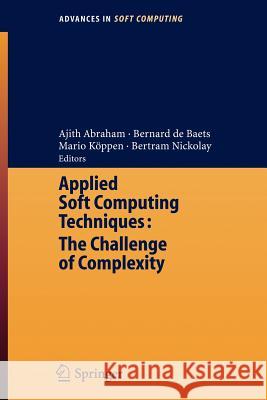Applied Soft Computing Technologies: The Challenge of Complexity » książka
Applied Soft Computing Technologies: The Challenge of Complexity
ISBN-13: 9783540316497 / Angielski / Miękka / 2006 / 840 str.
SVMs have emerged as very successful pattern recognition methods in recent years 16]. SVMs have yielded superior performance in various applications such as; text categorization 15], and face detection 12], content-based image retrieval 6], and learning image similarity 4]. The motivation here is detection of suspicious bags in a security situation. The usual method for bomb personnel is to blow up a suspicious bag, and any explosives contained therein. However, if the bag contains chemical, biological or radiological canisters, this may lead to disastrous results. Furthermore, the bl- up method also destroys important clues such as fingerprints, type of explosive, detonators and other signatures of importance for forensic analysis. Extraction of the bag contents using telerobotics avoids these problems 8]. In a telerobotic system, it is advantageous to automate bag classification which is coupled to robotic tactics such as shaking out of the bags contents. For cooperative hum- robot interaction, in situations when autonomous capabilities fail, a human may be called in to distinguish the bag type. Here we focus on the autonomous operation of such a telerobotic system. In the autonomous mode, bags are classified by type using SVMs for the purpose of identifying initial manipulator grasp points. One side of the gripper must slide under the bag, and because of slippage, the grasp may fail. Thus, it is of importance to realize the type of bag, and the location of the opening before the grasp point assessment is made."











